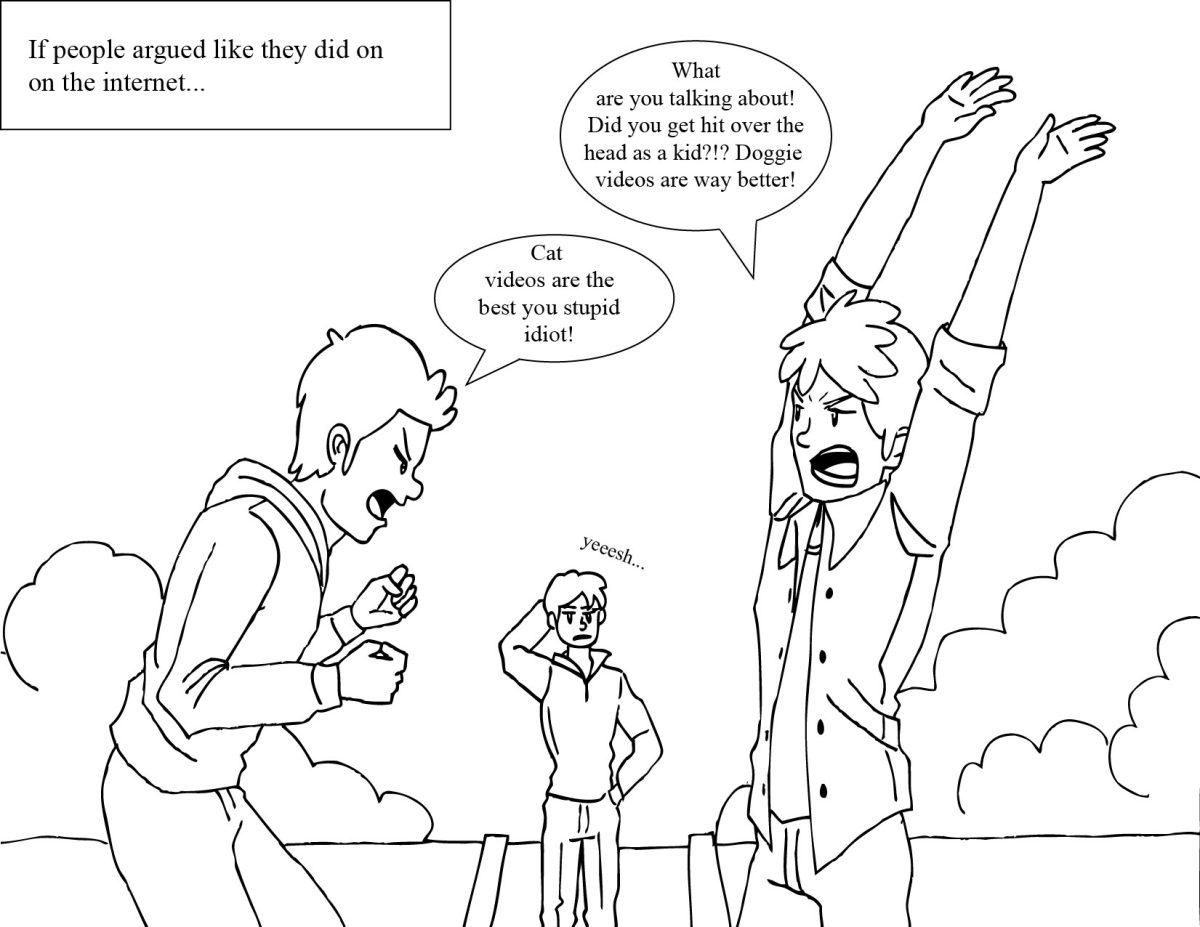It’s no secret we, as students, are smack dab in the middle of the most technologically- advanced century yet. Even when we were young, we had Gameboys, Playstations and even Tamagotchis, all small but important factors that make teenagers today arguably the most tech savvy generation.
That being said, it seems that nine out of 10 of these platforms require that individuals make an account prior to accessing the application or site. The logins that people create are usually true to their identities, but there are accounts made under fake names and pseudonyms, or perhaps not even names at all. The way that these sites are often designed, it’s easy to remain anonymous or post from a fake name.
Anonymity can be a powerful thing online. It’s fair to say sometimes individuals see this anonymity as a sort of entitlement, and an excuse to say things they wouldn’t ever say to another person face-to-face. This idea stems from the assumption that because they are anonymous, their comment can’t be traced back to them.
Websites like Ask.fm, formspring.com, and even the popular application Yik Yak that is becoming popular around Sonoma State University, are all anonymous platforms where individuals are free to say whatever they’d like to whomever they’d like. Even websites like Tumblr and Twitter don’t require vital personal information, but rather just an email, address and username of your choice.
Sometimes this sort of anonymity seems necessary. It’s easy to understand that sometimes people need their privacy on the Internet, or to vent or reach out for help in circumstances when they aren’t comfortable with revealing who they are. That being said, it’s important to understand Internet privacy is very limited. Much of anything and everything you do online is tracked and stored in a database that more often than not, can be traced back to an individual if need be. Depending on its intended purpose, Internet anonymity doesn’t have to be a bad thing. It can be used as a safety bubble that can result in negative comments and cyber bullying.
The website Formspring was very popular when I was a junior in high school. Formspring, like Askfm.com, allows users to “ask questions” to other users anonymously. In my personal experience, while questions were asked occasionally, it was more specifically used for people to offer their explicit opinion of one another whilst hiding anonymously behind a computer screen.
I remember a rumor going around that Formspring was going to flip the switch and reveal the usernames of everyone who posted. Chaos ensued as people rushed to delete their accounts completely in hopes the individual on the receiving end would never know it was them who had said that hurtful thing to them.
Another example is the MTV show “Catfish,” where two cast members, Nev Schulman and Max Joseph help individuals uncover who they’re really talking to online. A “catfish” refers to someone pretending to be someone they’re not, online. Oftentimes these individuals upload pictures of random people and take on fake names. In some circumstances people pretend to be a different sex or a different age than they really are, or even pretend to be a celebrity, all in order to pursue these deceptive online relationships. Usually, this decision takes a toll on both parties involved.
It’s not fair to say that everyone who takes on an anonymous identity online is doing so for the wrong reasons, but more often than not, the decision to be anonymous affects more than just the primary user.
If someone is only comfortable saying something anonymously, maybe it shouldn’t be said at all. While these websites are a great advancement technologically, it may have put us back a few steps as a society when it comes to our communication skills.




































